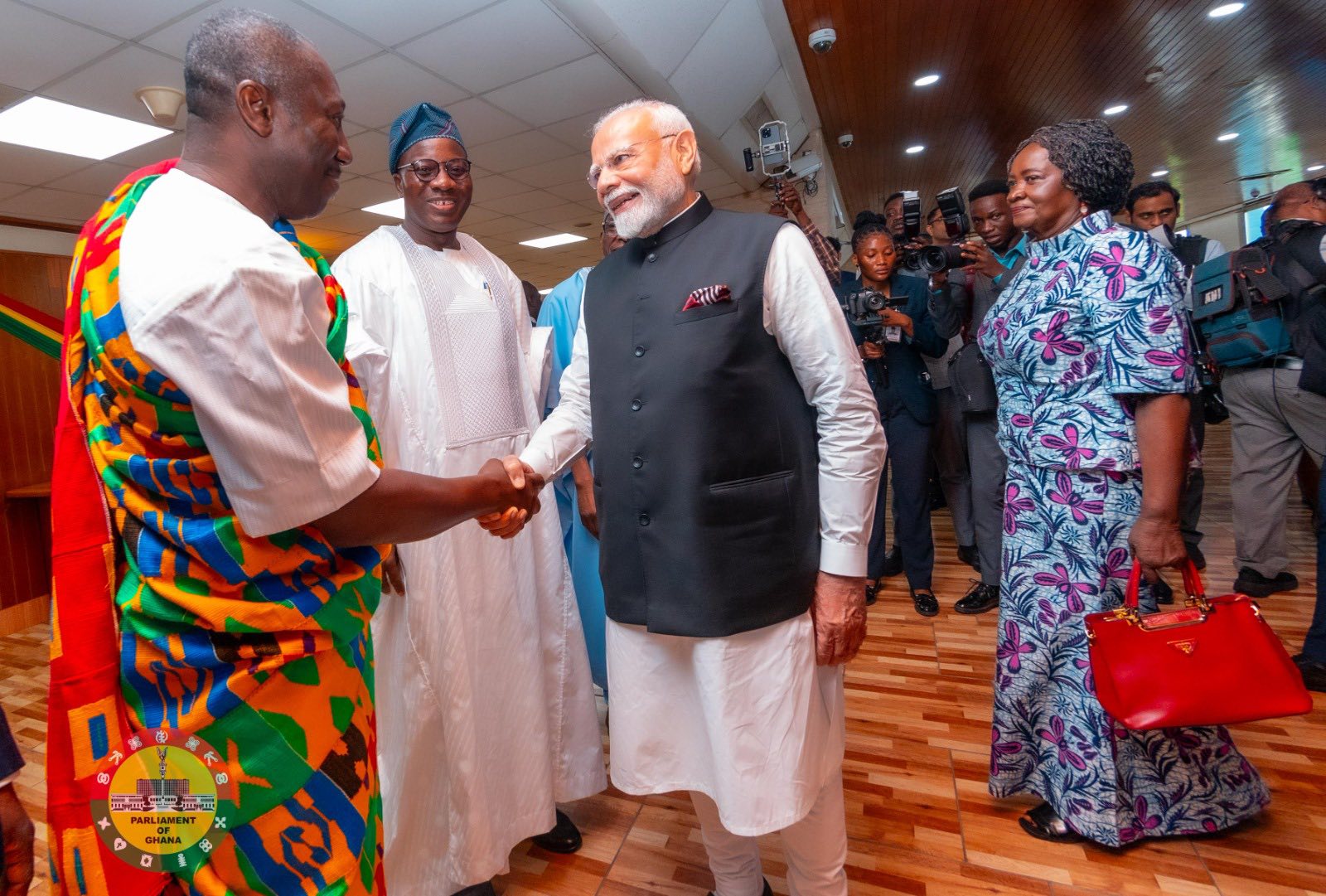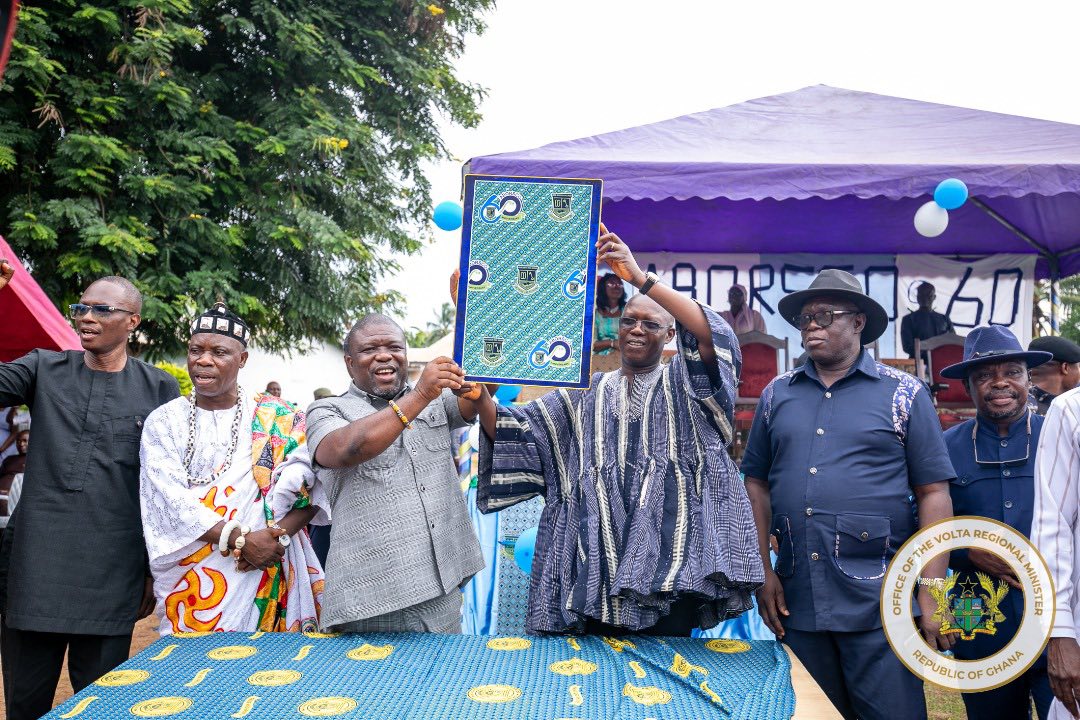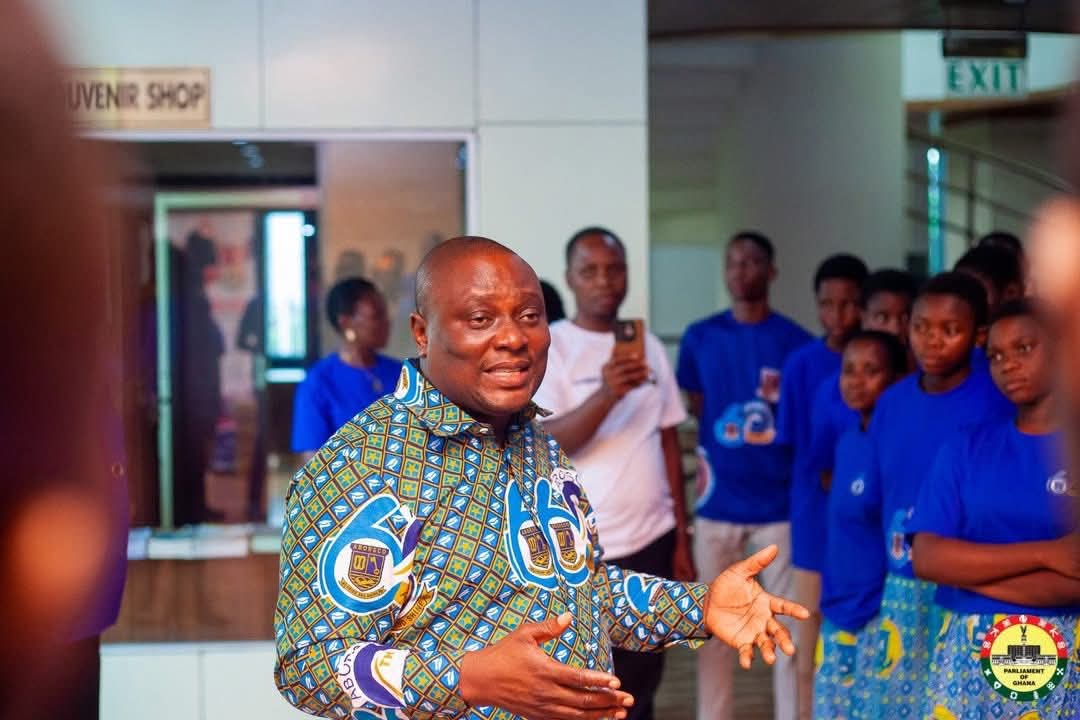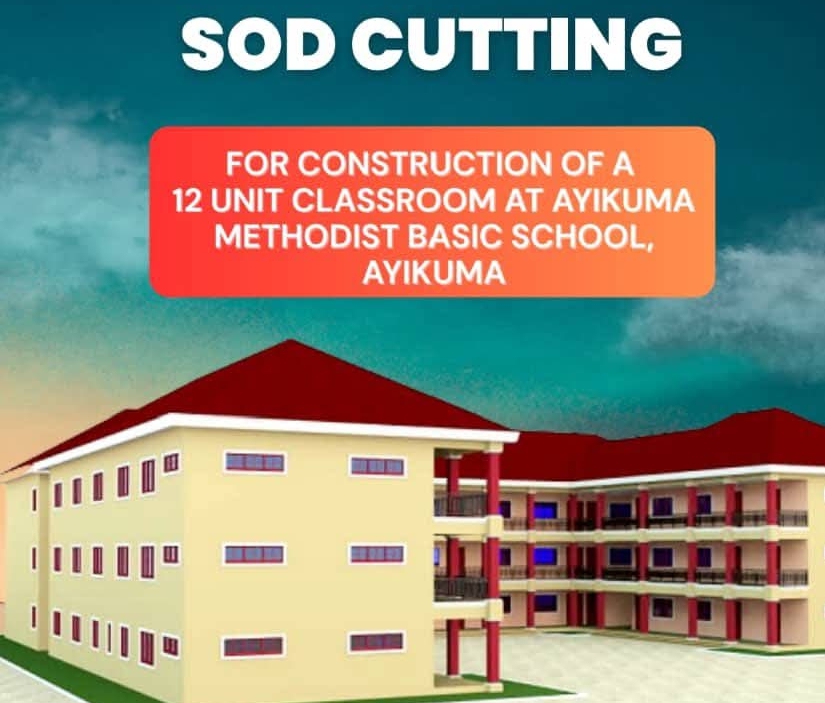The Minority in parliament has pledged their full support for the strengthening of Ghana–India relations and stands ready to deepen the bond between the two nations, for the benefit of generations to come.
They have also called for partnerships that go beyond investment— “partnerships rooted in local job creation, knowledge transfer, industrialization, and inclusive growth. Ghana is not just a market; we are partners in shaping the next frontier of global development”.
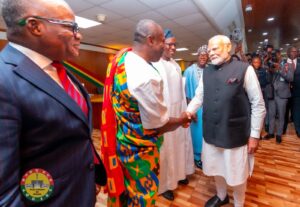
In a press Statement on the historic visit of the Prime Minister of the Republic of India to Ghana, the Minority leader and MP for Effutu Osahen Alexander Kwamena Afenyo-Markin welcomed India’s commitment to supporting Ghana as an African vaccine hub, and “we look forward to the implementation of signed MoU on agriculture, health, defence cooperation, and digital infrastructure. These frameworks must translate into measurable outcomes for our people”.
He however, urged both governments to institutionalize the Ghana–India partnership through stronger parliamentary diplomacy, including the establishment of a Ghana–India Parliamentary Friendship Association.
Below is the full statement:
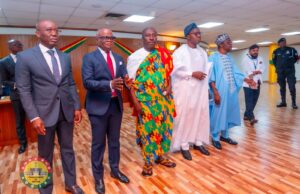
3rd July, 2025
FOR IMMEDIATE RELEASE
STATEMENT ON THE HISTORIC VISIT OF THE PRIME MINISTER OF THE REPUBLIC OF INDIA TO GHANA
The Minority Caucus in the Parliament of Ghana joins the entire nation in warmly welcoming the Prime Minister of the Republic of India, His Excellency Shri Narendra Modi, on the occasion of his historic official visit to Ghana.
Prime Minister Modi’s visit—his first to Ghana—marks the first time in over three decades that a sitting Indian Prime Minister has set foot on Ghanaian soil, and the first ever to address the Parliament of Ghana. It is a moment of deep diplomatic significance and a powerful reaffirmation of the enduring friendship between Ghana and India.
Our two nations share a proud history of cooperation, dating back to the pre-independence era when our founding fathers, Osagyefo Dr. Kwame Nkrumah and Pandit Jawaharlal Nehru, stood side by side in pursuit of a just, decolonised global order.
That legacy continues today through dynamic partnerships. India’s contributions to Ghana’s development—particularly in education, trade, technology, healthcare, and human resource capacity-building—have been invaluable.
We in the Minority Caucus applaud this partnership and reiterate our commitment to furthering it, guided by mutual respect, shared values, and strategic cooperation. We are particularly inspired by Prime Minister Modi’s own journey: from humble beginnings to national leadership, from regional governance to securing a historic third term as Prime Minister.
His rebranding of the Bharatiya Janata Party (BJP) into a dominant political force offers useful lessons in grassroots renewal, ideological clarity, and inclusive development. He rebranded a party once seen as marginal, that had long been in the shadows of Indian politics and gave it new life—anchoring it in ideological clarity, national pride, disciplined organisation, and people-centred governance.
That rebranding transformed the political landscape of India, culminating in a historic victory in 2014, and again in 2019 and 2024, with an overwhelming majority. We in the Minority find deep inspiration in his story.
His example proves that rebranding—when grounded in conviction, strategy, and a sincere desire to serve—is not only possible, but necessary. From Electoral Setback to National Triumph – The Modi Model In 2005, a democratically elected Indian leader was denied a visa to the United States—not for lacking valid documentation, but because the world had, in that moment, judged him unworthy. Imagine it: a leader elected by millions, turned away like a criminal.
The humiliation was crushing and the isolation, profound. That man was Narendra Modi. And today, that same man sits before the world as one of its most respected leaders— commanding global attention, guiding 1.4 billion people, and inspiring nations far beyond India’s borders.
His journey from rejection to global reverence is not just inspiring; it is instructive. When the 2002 Gujarat disturbances brought him under immense criticism, and when allies withdrew, many wrote his political obituary. But in that darkness, Mr. Modi chose work over excuses, transformation over self-pity, and results over rhetoric.
This is the model of leadership we admire: where pain becomes power, and isolation becomes incubation. In the 1980s, Modi watched the BJP struggle in Gujarat, dismissed by elites and ignored by media. But he rolled up his sleeves, walked the villages, and built from the ground up. Through methodical grassroots engagement, the party he led eventually won 121 Assembly seats in 1995.
In Ghana, we recognise the need to rediscover this spirit of connection—to step out of offices and reconnect with the markets, the farms, the classrooms, and the aspirations of everyday people. His economic vision also offers deep lessons. Prime Minister Modi believed that dignity does not come from charity but from productivity. As he once said, “If I had chosen the populist course, it would have been a breach of the trust placed in me by the people.”
That belief transformed Gujarat into India’s leading investment destination.
Those of us who lead Ghana must confront the dependency mindset that continues to trap too many of our people. Ghanaian entrepreneurs do not need charity, they need opportunity.
We have a duty to awaken the wealth-creating spirit in every Ghanaian. Prime Minister Modi’s tax reforms—especially the Goods and Services Tax (GST)—transformed India’s fiscal structure.
Ghana, too, needs similar reforms to simplify our tax regime, broaden the base, and encourage voluntary compliance. Even more remarkable has been his ability to rise above division. In a country fractured by caste and religious tensions, he declared: “All citizens are my countrymen.” These are not just words—they are the actions of a statesman who chooses unity over identity. Ghana must also overcome its own divisions—ethnic, political, regional—and pursue leadership that heals. And in today’s digital world, Prime Minister Modi’s transformative initiatives in financial inclusion and digital infrastructure show us what’s possible.
His leadership leapfrogged development challenges—ensuring millions accessed government services and financial platforms through technology. Ghana, with our mobile money innovation, has the foundation. We must now scale. India’s manufacturing renaissance under Mr. Modi has also been nothing short of revolutionary. Today, companies like Apple manufacture in India—not just for India. Ghana, too, can reawaken its manufacturing ambition.
The One District, One Factory initiative, with precision execution and global partnerships—especially with Indian investors—can drive rural transformation. A practical example of this vision in action is visible in the Effutu constituency, where construction is underway on Sub-Saharan Africa’s first tissue factory using wood pulp as raw material.
This $31 million Indo-Ghanaian private investment, initiated in July 2023 and set for commissioning by October 2025, will produce 22,000 metric tons of jumbo tissue rolls annually and create over 200 direct jobs. This is not just a factory—it is a symbol of what Indian-Ghanaian collaboration can achieve.
We welcome India’s commitment to supporting Ghana as an African vaccine hub, and we look forward to the implementation of signed MoUs on agriculture, health, defence cooperation, and digital infrastructure. These frameworks must translate into measurable outcomes for our people. The Minority Caucus urges both governments to institutionalise the Ghana–India partnership through stronger parliamentary diplomacy, including the establishment of a Ghana–India Parliamentary Friendship Association.
Finally, we call for partnerships that go beyond investment—partnerships rooted in local job creation, knowledge transfer, industrialisation, and inclusive growth. Ghana is not just a market; we are partners in shaping the next frontier of global development.
We pledge our full support for the strengthening of Ghana–India relations and stand ready to deepen the bond between our nations—for the benefit of generations to come. Once again, we say:
Akwaaba, Prime Minister Shri Narendra Modi.
-ENDSigned
OSAHEN ALEXANDER KWAMENA AFENYO-MARKIN MINORITY LEADER

























